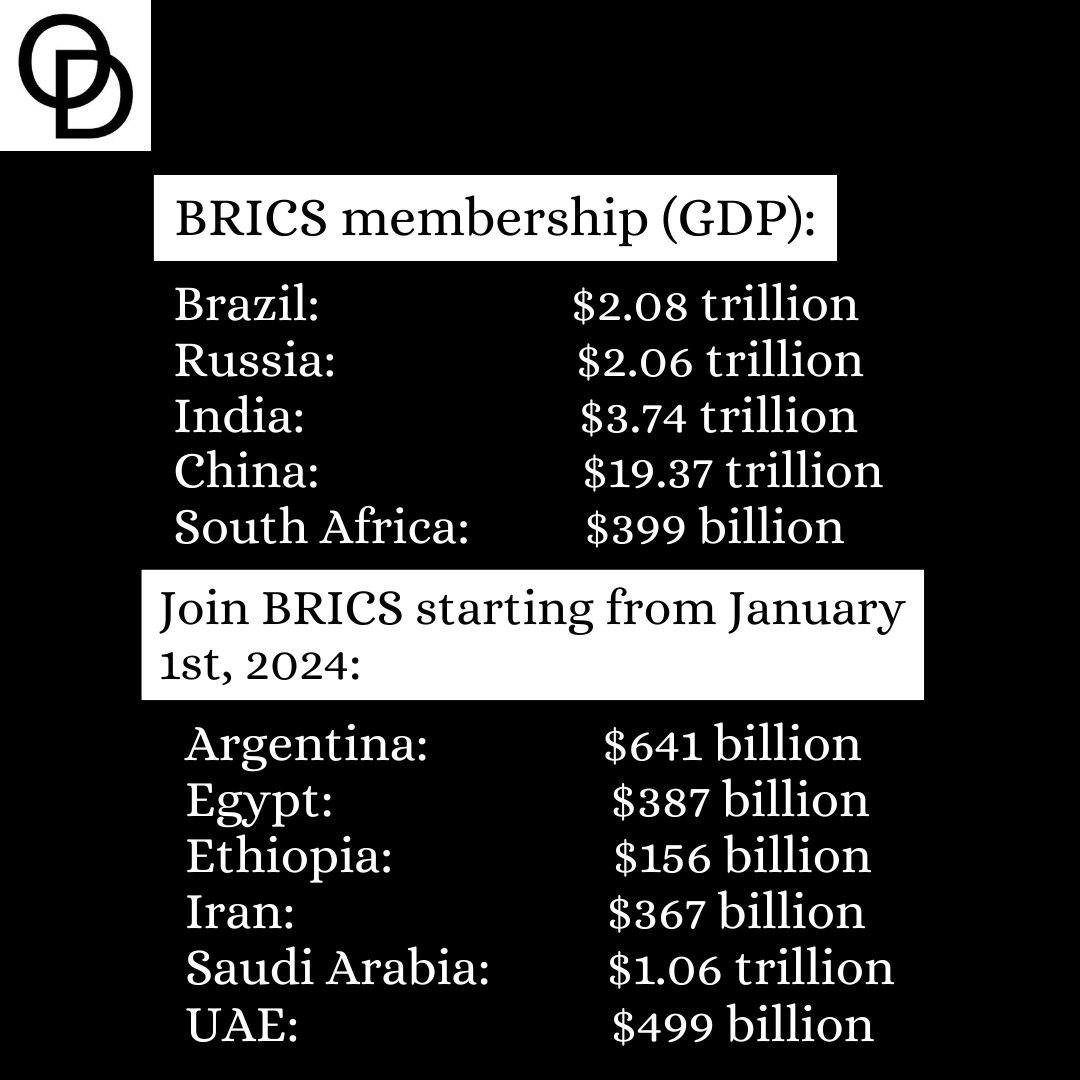The exclusion of Nigeria from the BRICS summit has sparked discussions globally. New insights from the World of Statistics suggest that the discrepancy in Gross Domestic Product (GDP) sizes might be the underlying cause for Nigeria’s absence. As the BRICS alliance strives to challenge the dominance of the G7, the economic might of the invited nations appears to have played a pivotal role in the selection process.
Economic Significance and BRICS’ Objectives
The BRICS nations, comprising Brazil, Russia, India, China, and South Africa, have undertaken the mission to counterbalance the influence of the G7 in international trade and geopolitics. With a collective GDP of $27.649 trillion, these countries aim to reshape global economic dynamics.
Analyzing GDP Disparity and New Invitations
Data released by an organization focused on statistical awareness revealed that the GDPs of potential new BRICS members, including Saudi Arabia, the UAE, Argentina, Egypt, and Ethiopia, overshadow Nigeria’s economy. Saudi Arabia’s $1.06 trillion economy stands out, while Argentina, the UAE, and Egypt boast GDPs of $641 billion, $499 billion, and $387 billion, respectively. Notably, the source of this data remains undisclosed.
Twitter Reactions and Expert Opinions
Nigerians took to Twitter to express their opinions regarding Nigeria’s exclusion from the BRICS summit. Remi Adekoya, a prominent Political Science lecturer, highlighted the impact of Nigeria’s devalued currency on its international economic standing. St. Paul attributed the economic setback to past government policies, while other Twitter users acknowledged the startling reversal of fortune that these statistics portray.
In the wake of these revelations, the international community remains curious about the potential rationale behind the selection of new BRICS members and the role that GDP size plays in this intricate process. As analysts, experts, and the public await more comprehensive insights, one fact remains clear: the interplay between GDP figures and geopolitical influence continues to shape the global economic landscape.
















